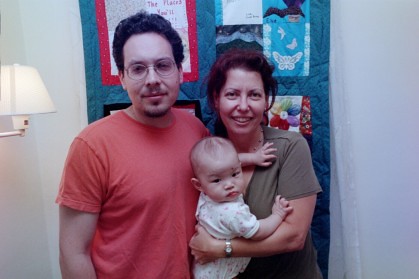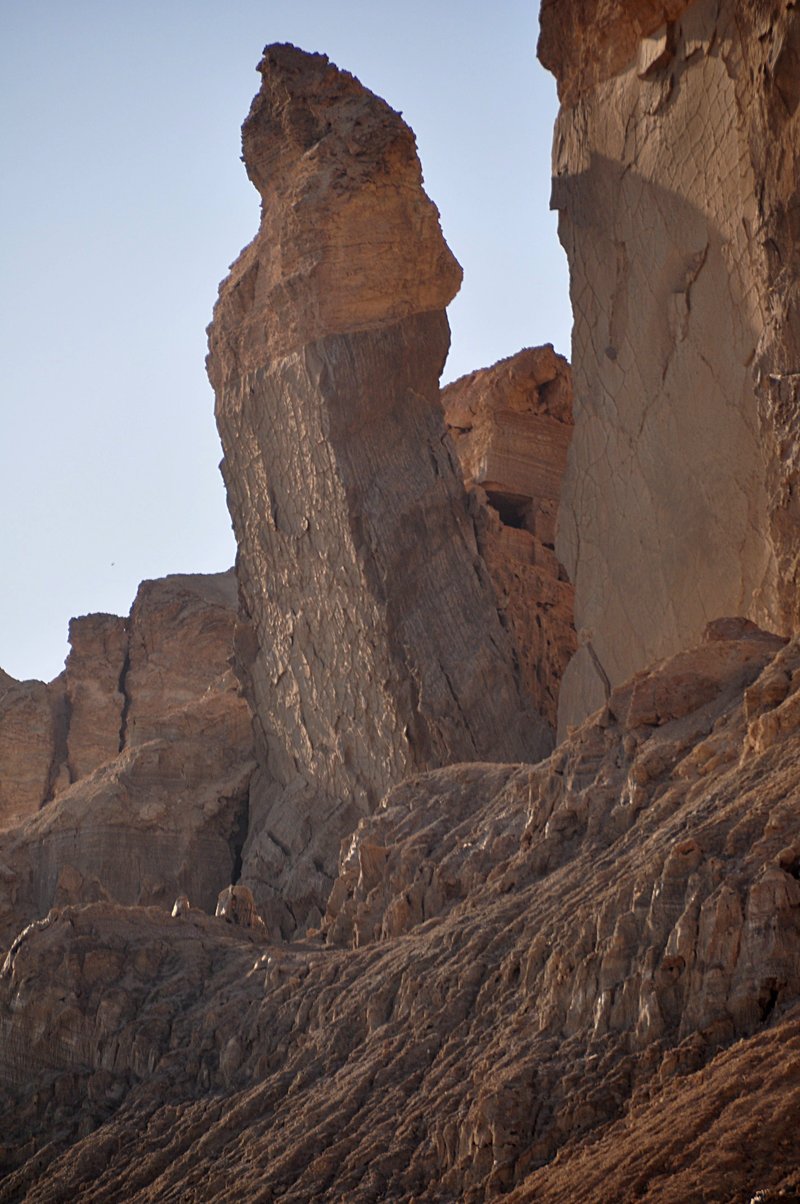|
|
Friday, February 28th, 2014
We're on our way south -- tonight in Freehold, tomorrow in Bordentown (and snow permitting, Monday in Sellersville). Excited! Will post gig notes.
posted afternoon of February 28th, 2014: Respond
➳ More posts about Robyn Hitchcock -- gig notes
|  |
Thursday, February 27th, 2014
Here is a poem I have been working on this week. The genesis is as follows: I was thinking about my poem Analogies for Time, and also about the Persistence of Memory. I thought, well, the Persistence of Memory is a suspension of time, time does not progress in a painting, the time on the melting watch will always be 6:55 and the watch will never melt away -- from all this came the line "No hay rÃo para correr a través de este paisaje soñado" -- it's a landscape without a river. Well: a promising line. I spent a while tossing it around and it is seeming not to be so much a poem about that painting, but about a landscape that is outside of time. (Possibly this landscape could be the setting for the eternal city in "El inmortal".) Here is what I've got so far:
No river flows through this immortal landscape, dry and still.
No hunter seeks the spoor of his hallucinated prey.
The jagged cliffs look down on desert -- cliffs of granite, dreary desert --
static sands untouched by wind or moisture, waiting still
for time eternal, the imagined camera pans and zooms
but finds no hint of motion, no decay,
no sign of change for good or ill.
posted evening of February 27th, 2014: Respond
➳ More posts about Poetry
|  |
Monday, February 24th, 2014

posted evening of February 24th, 2014: Respond
➳ More posts about Don Quixote
|  |
Saturday, February 22nd, 2014
Two short, untitled poems I wrote this week open the same way:
So he tells you
how her ears perked up
and she strained at the leash
as they walked beneath
the rustling maples.
He wondered
what the dog was sensing,
what presence unfelt by her master
the animal knew.
She shook her head and her collar jingled,
and they quickened their pace.
So he tells you
how she looked at the ice
hanging from the eaves of his house
and said it looked like daggers.
("like daggers" is not exactly right, that ending still needs some work.)
I'm kind of enchanted with this form, which seems like it would work for fiction as well -- It brings you into the past tense very naturally and sets up a framework of person -- narrator, reader, characters. The narrator here is identified as "he" and the reader as "you", and implicitly "I" am the author, prior to the shift of frame of reference that occurs on the second line; and there does not really need to be any mention of "him" or of "you" after this first clause, depending -- he can refer to himself in the first person and tell his story as "I", or I the author can keep referring to him in the third person.(Note I don't think this form would work with an omniscient 3rd-person perspective, which is something I have never tried.)
posted morning of February 22nd, 2014: 2 responses
➳ More posts about Writing Projects
|  |
Monday, February 17th, 2014

posted morning of February 17th, 2014: Respond
➳ More posts about Pretty Pictures
|  |
Sunday, February 16th, 2014
Click "like" upon my statuses, ye Mighty, and despair...
posted morning of February 16th, 2014: Respond
|  |
Saturday, February 15th, 2014
This time in my native tongue! Happy Valentine's Day, Ellen!
posted afternoon of February 15th, 2014: Respond
➳ More posts about Projects
|  |
¿Recuerdas bien cuando nos encontramos
en Gomorra? Cuando aún no tenÃas barba --
y yo engrasaba el pelo, iluminada por el farol antes de
verte; éramos jóvenes y con esa juventud nos sonrojábamos
como frutas magulladas. ¿Nos interesó entonces
lo que pasara entre los vecinos
en la oscuridad?
Mientras nos nacÃa la primera hija
al lado del rÃo Jordán, mientras
la rosada cabeza de la segunda
se esforzaba, saliendo de mi cuerpo
como promesa ¿nos preocupó
cómo usaran la lengua
los amigos?
O ¿cuáles grietas nuevas encontraran
para lamer el amor? o ¿cuál carne extraña
encontraran para empujar el placer? En llamarlo
entonces a uno sodomita,
sólo quisimos decir
vecino.
Cuando nos mandaron los ángeles correr
de la ciudad, te acompañé;
pero eses ángeles sabÃan también
que mira la mujer siempre atrás.
Déjame asà decirte, Lot,
cómo lucÃa tu ciudad en llamas
puesto que tú nunca te volviste para mirarla.
Los dedos pegajosos del azufre se arrastraban sobre la piel
de nuestros compatriotas. A pelo quemado apestaba
y a huevos rancios. Observé a los amigos sacando trozos
ardiendo de sus rostros. ¿Hay una forma
tan obscena de amar?
Cúbrete los ojos con fuerza,
hombre, hasta que veas las estrellas. Convéncete
de que miras el cielo.
Pues el hombre que es bastante débil para cerrar los ojos mientras
se castiga a los vecinos por la forma en que se aman merece a un dios
malévolo.
Todo esto te lo dirÃa, Lot,
si no se me hubiera secado océano en la lengua.
En lugar de eso me quedaré aquÃ; mi cuerpo soplará
grano a grano de regreso a la tierra de Canaán
Voy a quedarme aquÃ
y te veré
correr.
posted afternoon of February 15th, 2014: 2 responses
➳ More posts about Translation
|  |
Tuesday, February 11th, 2014
I saw Sylvia Plath's poem "Mad Girl's Love Song" today and was impressed by the elegance of the form, and thought I would try one.
Aturdir
por J. Osner
parece esencial hacer sentido
las lÃneas cultivo, crecen del centro
los dichos se regresan aturdidos
busco recuerdos hace mucho perdidos
digo los sueños los que yo encuentro
parece esencial hacer sentido
sueños romanticos y sin sentido
visiones que se lucen desde dentro
los dichos se regresan aturdidos
escuchad de cerca, mis queridos
las palabras caen en desencuentro
parece esencial hacer sentido
parece fácil pues ser entendido
pienso; pero cuando me concentro
los dichos se regresan aturdidos
ojalá se vean, comprendidos
los obstáculos los que encuentro
parece esencial hacer sentido
los dichos se regresan aturdidos
posted afternoon of February 11th, 2014: 1 response
|  |
Sunday, February 9th, 2014
O.M.G: look at the 77th quatrain (as numbered in this translation) of the Rubáiyát (written 800 years or more before the good Machado's birth):
Todos los seres tratan de recorrer el camino del conocimiento:
Aún lo buscan unos; otros afirman que ya lo encontraron.
Sin embargo, aún no se ha levantado la voz que un dÃa clamará:
"No hay camino; no hay sendero".
Everyone tries to walk in the path of knowledge:
Some are still searching, some claim that they have found it.
But the voice has not yet spoken up which one day will cry out:
"There is no road; there is no path."
posted evening of February 9th, 2014: 1 response
| Previous posts
Archives  | |
|
Drop me a line! or, sign my Guestbook.
•
Check out Ellen's writing at Patch.com.
| |













